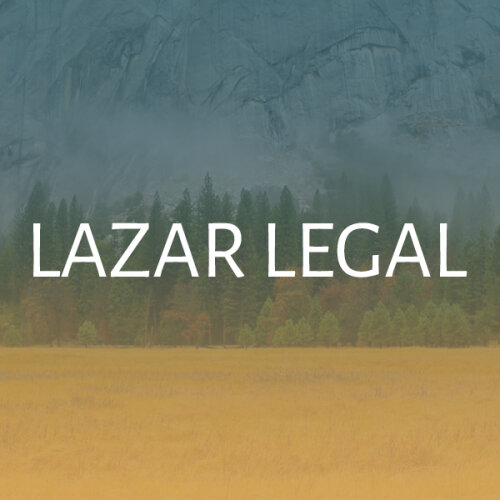Best Estate Planning Lawyers in New York
Share your needs with us, get contacted by law firms.
Free. Takes 2 min.
Or refine your search by selecting a city:
List of the best lawyers in New York, United States
United States Estate Planning Legal Questions answered by Lawyers
Browse our 2 legal questions about Estate Planning in United States and read the lawyer answers, or ask your own questions for free.
- My husband passed away five years ago. We have a property in th Philippines and I would like to transfer everything to my child. We are now residing in California, as U.S. citizens and my late husband a Filipino citizen.c
- How can I transfer Title on the property to my child?
-
Lawyer answer by Recososa Law Firm
Hello: We are sorry to hear about the passing of your husband, and we extend our deepest condolences. Regarding your concern, since your husband was a Filipino citizen and you are now both U.S. citizens residing in California, the property...
Read full answer - How to protect property from squatters law
- Deed in my mom's name. She died 18 years ago. Son is named as administrator but not as owner. We live in USA so let Non relative live there for 45-50 year but had no formal contract. Let him live there free as long as he paid utilities and taxes.... Read more →
-
Lawyer answer by M BILAL ADVOCATES, CORPORATE & TAX CONSULTANTS
After completing probate to establish yourself as the legal heir, you can transfer the property title to your name and then grant them permission to reside there through a formal agreement. It is worthy to note that you can do...
Read full answer
About Estate Planning Law in New York, United States
Estate planning is the process of arranging for the management and distribution of your assets both during your life and after your death. In New York, estate planning ensures your wishes are followed, helps reduce taxes and court costs, and protects your loved ones from legal complications. It typically involves creating legal documents like wills, trusts, powers of attorney, and healthcare proxies. Estate planning also allows you to appoint trusted individuals to make decisions on your behalf if you become incapacitated, provide for minor children, and specify how your personal and business assets are handled.
Why You May Need a Lawyer
New York estate planning laws can be complex, and mistakes may have significant and long-lasting consequences. Here are common situations where someone may need legal help with estate planning:
- You own real estate, especially if it is located in multiple states or is used for business purposes.
- You have minor children or dependents with special needs who require guardianship or long-term care arrangements.
- Your family situation is complicated, such as having a blended family, divorces, or estranged relatives.
- You want to minimize estate, inheritance, or gift taxes for your heirs.
- You own a business and want to ensure a smooth transition or succession plan.
- You want to ensure DIY documents are valid under New York law and accurately reflect your intentions.
- You wish to protect your assets from the costs of long-term care or creditors.
- You have a high net worth or significant financial assets.
- You need to update or revoke existing estate planning documents.
- You are concerned about probate delays and wish to keep your affairs private.
An experienced estate planning attorney can help you understand your options, tailor a plan to your goals, and ensure adherence to current state laws.
Local Laws Overview
Estate planning in New York is governed by a variety of state laws, primarily the New York Estates, Powers and Trusts Law (EPTL) and the Surrogate's Court Procedure Act (SCPA). Here are some key aspects relevant to New York residents:
- Wills: New York requires that a will be signed by the testator (person making the will) and witnessed by at least two individuals. Wills can be contested on grounds such as undue influence, fraud, or lack of capacity.
- Probate Process: Upon death, the will is submitted to the Surrogate's Court for probate, a legal process that approves the will and appoints an executor. If there is no will, assets are distributed according to New York’s intestacy laws.
- Trusts: Various trusts can be established, including revocable, irrevocable, and special needs trusts. Properly structured trusts can avoid probate and protect assets.
- Power of Attorney: This legal document lets you appoint someone to manage your financial affairs if you become incapacitated. New York requires specific statutory forms for these documents to be valid.
- Health Care Proxy and Living Wills: These advance directives allow others to make medical decisions for you or specify your wishes if you are unable to communicate.
- Estate Taxes: New York has a separate estate tax in addition to the federal estate tax. Planning may be necessary to minimize the estate tax burden for larger estates.
- Guardianship: New York law allows you to nominate a guardian for minor children or incapacitated adults, which the court generally honors unless there is a compelling reason not to do so.
Due to the unique complexities of New York law, consulting with a local attorney ensures your documents are drafted and executed in accordance with current requirements.
Frequently Asked Questions
What is the difference between a will and a trust in New York?
A will directs the distribution of assets after death and must go through probate, a court-supervised process. A trust allows assets to pass outside probate, offers more privacy, and can provide benefits during your lifetime as well as after death.
Is a handwritten will valid in New York?
Generally, New York does not accept handwritten (holographic) wills except in very limited circumstances, such as by active-duty military members. Most residents must sign a typed will in the presence of two witnesses.
What happens if I die without a will in New York?
If you die intestate (without a will), your assets are distributed according to New York’s intestacy laws, which prioritize spouses, children, and other close relatives. The process may not reflect your personal wishes.
Do I need a lawyer to create a will or trust?
While it is possible to create a will or trust without a lawyer, legal advice ensures your documents comply with New York law, avoid pitfalls, and accurately reflect your wishes, especially in complex situations.
How does probate work in New York?
Probate is the process of validating a will in Surrogate’s Court, settling debts, and distributing assets. It can be time-consuming and public. Some assets, like jointly owned property and certain trusts, may avoid probate.
How can I minimize estate taxes in New York?
You can use gifting strategies, certain trusts, and careful asset structuring to reduce estate taxes. It is recommended to consult an attorney who understands both New York and federal estate tax laws.
What is a power of attorney, and when do I need one?
A power of attorney designates someone to manage your financial affairs if you become incapacitated. It becomes crucial in the event you are unable to make decisions due to illness, accident, or age.
Can I name a guardian for my children in my will?
Yes. New York law allows you to nominate a guardian in your will for minor children. The court usually honors your choice unless it determines that the person is unfit or there is a significant reason to override your selection.
What is a living will or health care proxy?
A living will outlines your medical care preferences. A health care proxy appoints someone to make healthcare decisions for you if you are unable to communicate. Both are important parts of an estate plan in New York.
How often should I update my estate plan?
It is wise to review your estate plan every three to five years or after major life events such as marriage, divorce, birth of a child, or significant changes in your assets.
Additional Resources
If you would like to learn more about estate planning in New York or seek help, the following organizations and agencies can offer valuable guidance:
- New York State Surrogate’s Court - Handles probate, administration, and guardianship matters.
- New York State Bar Association - Offers referral services for finding qualified estate planning attorneys in your area.
- New York Office for the Aging - Provides information for seniors on estate planning and elder law.
- Legal Aid Societies - Offer free or low-cost legal services for those who qualify.
- Local law libraries - Many public libraries in New York have legal resources and reference librarians who can help locate information about estate planning.
Next Steps
If you are considering estate planning or need legal assistance, here are the steps you can take:
- Assess your assets, family dynamics, and personal goals.
- Gather important documents such as deeds, account statements, and details about existing insurance policies or prior estate plans.
- Make a list of individuals you may want to designate as beneficiaries, executors, trustees, or guardians.
- Contact a qualified estate planning attorney familiar with New York law to discuss your situation and develop a personalized plan.
- Review and sign your documents in accordance with legal requirements.
- Keep your documents in a safe, accessible place, and inform trusted family members or representatives.
- Revisit your plan regularly to ensure it stays up to date with your life changes and current laws.
Taking proactive steps in estate planning today can offer peace of mind and clarity for both you and your loved ones in the future.
Lawzana helps you find the best lawyers and law firms in New York through a curated and pre-screened list of qualified legal professionals. Our platform offers rankings and detailed profiles of attorneys and law firms, allowing you to compare based on practice areas, including Estate Planning, experience, and client feedback.
Each profile includes a description of the firm's areas of practice, client reviews, team members and partners, year of establishment, spoken languages, office locations, contact information, social media presence, and any published articles or resources. Most firms on our platform speak English and are experienced in both local and international legal matters.
Get a quote from top-rated law firms in New York, United States — quickly, securely, and without unnecessary hassle.
Disclaimer:
The information provided on this page is for general informational purposes only and does not constitute legal advice. While we strive to ensure the accuracy and relevance of the content, legal information may change over time, and interpretations of the law can vary. You should always consult with a qualified legal professional for advice specific to your situation.
We disclaim all liability for actions taken or not taken based on the content of this page. If you believe any information is incorrect or outdated, please contact us, and we will review and update it where appropriate.
Browse estate planning law firms by city in New York
Refine your search by selecting a city.














